Roméo LeBlanc
Roméo-Adrien LeBlanc PC CC CMM ONB CD (December 18, 1927 – June 24, 2009)[1] was a Canadian journalist, politician, and statesman who served as Governor General of Canada, the 25th since the Canadian Confederation.
Roméo LeBlanc | |
|---|---|
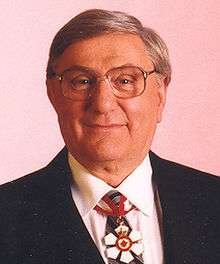 | |
| 25th Governor General of Canada | |
| In office February 8, 1995 – October 7, 1999 | |
| Monarch | Elizabeth II |
| Prime Minister | Jean Chrétien |
| Preceded by | Ray Hnatyshyn |
| Succeeded by | Adrienne Clarkson |
| More... | |
| Personal details | |
| Born | Roméo-Adrien LeBlanc December 18, 1927 Memramcook, New Brunswick, Canada |
| Died | June 24, 2009 (aged 81) Grande-Digue, New Brunswick, Canada |
| Political party | Liberal |
| Spouse(s) |
|
| Children | Dominic LeBlanc Genevieve LeBlanc |
| Profession | Politician, Journalist, Teacher |
| Signature | |
LeBlanc was born and educated in New Brunswick, and also studied in France prior to becoming a teacher and then a reporter for Radio-Canada. He was subsequently elected to the House of Commons in 1972, whereafter he served as a minister of the Crown until 1984, when he was moved to the Senate and became that chamber's Speaker.
In 1994, he was appointed as governor general by Queen Elizabeth II, on the recommendation of Prime Minister of Canada Jean Chrétien, to replace Ramon John Hnatyshyn as viceroy, and he occupied the post until succeeded by Adrienne Clarkson in 1999, citing his health as the reason for his stepping down. His appointment as the Queen's representative caused some controversy, due to perceptions of political favouritism, though he was praised for raising the stature of Acadians and francophones, and for returning Rideau Hall to the centre of life in Ottawa.
On August 8, 1974, LeBlanc was sworn into the Queen's Privy Council for Canada.[2] He died of Alzheimer's disease on June 24, 2009, aged 81.
Youth and political career
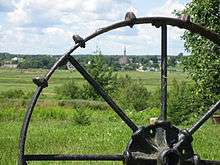
Born on December 18, 1927 and raised in Memramcook, New Brunswick, LeBlanc obtained bachelor degrees in arts and education from the Collège St-Joseph before studying French civilization at the Université de Paris. He then moved on to teaching for nine years— at Drummond's high school from 1951–53 and the New Brunswick Teachers' College in Fredericton from 1955-59— after which he obtained work between 1960-67 as a journalist with the Canadian Broadcasting Corporation's French language broadcaster, Radio-Canada, serving in the bureaus in Ottawa, the United Kingdom, and the United States.[3]
His first marriage, to Joslyn "Lyn" Carter, with whom LeBlanc had two children (Genevieve and Dominic), lasted from 1966–81;[4] in 1994, he married Diana Fowler, who also had two children from a previous marriage.[5]
LeBlanc stepped into the realm of politics when he became the press secretary for successive prime ministers Lester B. Pearson and Pierre Trudeau. He then went further, winning in the 1972 federal election a seat in the House of Commons as the Liberal Party representative for Westmorland-Kent, paving the way for his appointment as the Minister of Fisheries and Oceans in the Cabinet chaired by Trudeau.
LeBlanc was a key figure in Canada's imposition of a 200-mile fishing zone; the establishment of a new fisheries licensing system; the widespread use of quotas and zones that protected Canadian fishermen from overexpansion and competition from trawlers owned by large companies; the owner-operator rule, requiring licence holders to operate vessels themselves; the separate-fleet rule, preventing corporations from obtaining licences for an under-65-foot fleet; and for creating an additional system of advisory committees that permitted fishermen a larger voice in fisheries management.
On one occasion, LeBlanc also persuaded Trudeau to advise the Governor General to close Canadian ports to Soviet fishing vessels, a headline-grabbing diplomatic thrust that resulted in better co-operation, and forbade all foreign corporations from holding commercial fishing licences in Canada.[6]
On the Pacific coast, LeBlanc oversaw the creation of the Salmonid Enhancement Program, which aimed at doubling salmon production, and quelled plans by Alcan that were deemed to threaten salmon rivers at the time.[7]
Late in 1982, LeBlanc became Minister of Public Works for two years before being nominated by Trudeau to then Governor General Jeanne Sauvé for appointment to the Senate on June 29, 1984. He was then selected in 1993 by Prime Minister Jean Chrétien as Governor General Ray Hnatyshyn's appointee as that chamber's speaker.
Governor General of Canada
LeBlanc's time as the Queen's viceregal representative was considered to have been low key and largely uneventful, especially in comparison to that of his successor, Adrienne Clarkson.[8][9][10][11] He was, however, the first governor general of Acadian heritage, which earned praise from the Acadian community, and he was also the first from the Canadian maritimes to be appointed as viceroy.[8]
As governor general-designate
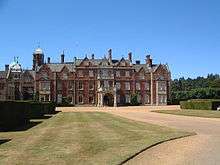
It was announced from the Office of the Prime Minister of Canada on November 22, 1994 that Queen Elizabeth II had approved Prime Minister Jean Chrétien's choice of LeBlanc to succeed Ray Hnatyshyn as the Queen's representative.
Thereafter, LeBlanc was invited to an audience with the Queen at Sandringham House, and he was said to have been impressed and inspired by the devotion to duty on the part of both Elizabeth and her mother.[12]
The commission appointing LeBlanc under the royal sign-manual and Great Seal of Canada was issued on January 16, 1995.[13]
The largest bout of publicity around LeBlanc and regarding his governor generalcy came immediately after the announcement of his appointment to the post: although previous governors general had worked as politicians prior to and after serving as viceroy, the recommendation of a prominent Liberal Party politician and organiser was criticised as being little more than a patronage gift from the Prime Minister to a loyal party member.
In the 1993 federal election, LeBlanc had been one of the chief architects of the Liberal Party's election strategy, and was a strong party loyalist. In protest, both Reform Party of Canada leader Preston Manning and Bloc Québécois leader Lucien Bouchard refused to attend LeBlanc's installation ceremony.[8]
In office
As with each governor general, LeBlanc took on unofficial and personal mandates, choosing for himself: voluntarism, the teaching of Canadian history, Canada's Aboriginal peoples, and the military. He spoke often about the generosity, tolerance, and compassion of Canadians, and admired the dignity and abilities of the common citizen.
To recognize the "unsung heroes" who volunteer their time and effort to help others, LeBlanc initiated in 1996 the Governor General's Caring Canadian Award, and, on June 21, of the same year, was proud to issue a royal proclamation inaugurating National Aboriginal Day as an annual observance.[14]
As well, in 1996 LeBlanc formed the Governor General's Award for Excellence in Teaching Canadian History, in 1999 partnered with the Canada Council for the Arts to create the Governor General's Awards in Visual and Media Arts, oversaw the issuance of the Governor General's Canadian History Medal for the Millennium, and established the Governor General's Millennium Edition of the Map of Canada, which was taken into space in 1999 by Julie Payette.[15]
LeBlanc travelled to all parts of Canada and had a special affinity for small towns and cities, making himself particularly visible in those parts of Quebec after the province's referendum on secession in 1995. He participated in more than 2,000 events, including the annual New Year's Levée, which he moved to various locations around the country, seeing the party organised at Ottawa, Ontario, in 1996; Quebec City, Quebec, in 1997; Winnipeg, Manitoba, in 1998; and St. John's, Newfoundland and Labrador, in 1999.
Over the same years, LeBlanc also had public access to Rideau Hall and its grounds expanded and improved— including opening a dedicated visitors' centre in 1997— so that the number of visitors increased threefold to approximately 125,000 people per year.[15] In keeping with his respect for the First Peoples of Canada, LeBlanc placed a totem pole and inukshuk prominently on the royal property.
Amongst numerous other official and ceremonial duties, the Governor General granted Royal Assent to amendments to the constitution on three occasions: April 21, 1997, December 19, 1997, and January 8, 1998, and also issued the royal proclamation announcing the creation of the territory of Nunavut on April 1, 1999. LeBlanc welcomed to Rideau Hall the Queen, Prince Philip, Duke of Edinburgh, and Prince Charles, Prince of Wales, along with a host of foreign dignitaries such as United States president Bill Clinton and his wife, Hillary; King Hussein and Queen Noor of Jordan, and later Hussein's son, King Abdullah II, and his wife Queen Rania; as well as President of South Africa Nelson Mandela; and President of China Jiang Zemin. Further, he undertook eight state visits, becoming the first governor general of Canada to make such trips to the Czech Republic, India, Pakistan, the Ivory Coast, Tanzania, Mali, and Morocco.[15]
Legacy
As governor general, LeBlanc was viewed as having been a role model for Acadians, and was complimented for having drawn the attention of the country to Acadian history and culture. As such, he was seen as a symbol for reconciliation, given the past relations between the Acadians and the Canadian Crown's predecessor. At the same time, LeBlanc was also credited for returning Rideau Hall to a status closer to that which it held a century previous, when it was the centre of life in the national capital.[8]
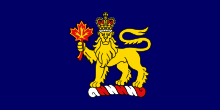
Although LeBlanc enjoyed all the provinces and territories, his visits touching small towns as well as big cities, he travelled to events in his home province to a degree that some saw as disproportionate. Moreover, LeBlanc never sought media coverage, with the result that many Canadians were unaware of who he was, and his down-to-earth demeanour was thought by some to have been too "folksy" for the post.[12] The accusations of political patronage also failed to evaporate during LeBlanc's governorship; while LeBlanc was viceroy, his son, Dominic, continued to work for the prime minister's office until 1997, when he ran for election to the House of Commons in LeBlanc's old riding, where the Governor General had a series of events planned the very week he dropped the election writs. Further, LeBlanc's daughter maintained employment as a political assistant to Liberal Cabinet ministers, and some of the Governor General's staff had close Liberal Party connections.[8]
Personal touches were also left on the symbol of the Canadian viceregal office, from which LeBlanc removed the claws and tongue of the crowned lion,[12] saying that they were impolite and un-Canadian. Though the change did not gather much attention until near the end of LeBlanc's tenure, the reaction, when it came, was generally unfavourable, and the modifications were undone by his successor.[8]
Post-viceregal life and death
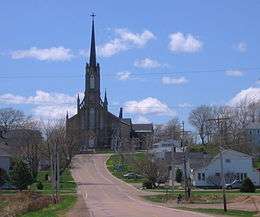
After being released from the Queen's service, LeBlanc returned to New Brunswick. There, after a lengthy battle with Alzheimer's disease, he died on June 24, 2009, in Grande-Digue.[16]
He was, as is protocol for all incumbent and former governors general, accorded a state funeral, which took place on July 3 of the same year, in Memramcook. The casket's path through the community was lined with officers from the Department of Fisheries and Oceans, paying homage to LeBlanc's time as minister of the Crown with that portfolio,[17] and the sitting governor general, Michaëlle Jean, her prime minister, Stephen Harper, and LeBlanc's former prime minister, Jean Chrétien, all attended.[18]
Canada Post featured LeBlanc on a postage stamp released on February 8, 2010.[19]
Titles, styles, honours, and arms
Titles
| Viceregal styles of Roméo LeBlanc (1995–1999) | |
|---|---|
| Reference style | His Excellency the Right Honourable Son Excellence le très honorable |
| Spoken style | Your Excellency Votre Excellence |
- August 8, 1974 – February 8, 1995: The Honourable Roméo LeBlanc
- February 8, 1995 – October 7, 1999: His Excellency the Right Honourable Roméo LeBlanc, Governor General and Commander-in-Chief in and over Canada
- October 7, 1999 – June 24, 2009: The Right Honourable Roméo LeBlanc
Honours
| Ribbon bars of Roméo LeBlanc | |||
|---|---|---|---|
- Appointments
.svg.png)
.svg.png)
.svg.png)
- October 8, 1999 – June 24, 2009: Companion of the Order of Canada (CC)
.svg.png)
- October 8, 1999 – June 24, 2009: Commander of the Order of Military Merit (CMM)
.svg.png)
- October 8, 1999 – June 24, 2009: Knight of Justice of the Most Venerable Order of the Hospital of Saint John of Jerusalem (KStJ)
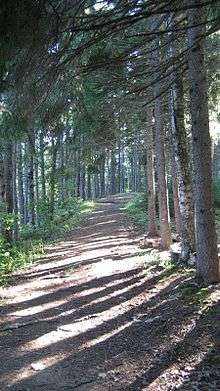
.svg.png)
.svg.png)
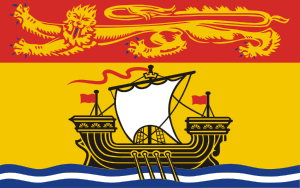
- Medals
.svg.png)
.svg.png)
.svg.png)
- Foreign honours

Honorary military appointments



Honorary degrees


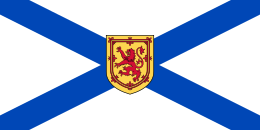
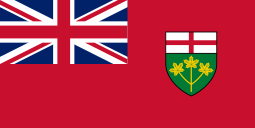


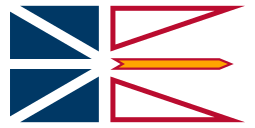
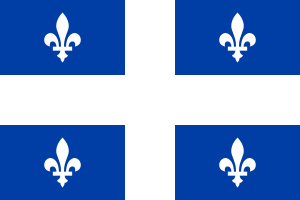

Honorific eponyms
- Geographic locations
Arms
|
See also
| Wikiquote has quotations related to: Roméo LeBlanc |
References
- "State Funeral of Romeo LeBlanc". Government of Canada. 2017-09-19. Retrieved 21 March 2019.
- Privy Council Office (October 30, 2008), Information Resources> Current Chronological List of Members of the Queen's Privy Council for Canada> 1971–1980, Queen's Printer for Canada, retrieved March 2, 2009
- Library and Archives Canada, Governor General Roméo LeBlanc and Mrs. Diana Fowler LeBlanc, Queen's Printer for Canada, retrieved March 2, 2009
- Martin, Sandra (June 24, 2009), "He never, ever lost his roots", The Globe and Mail, retrieved June 24, 2009
- Office of the Governor General of Canada, Role and Responsibility > Former Governors General > The Right Honourable Roméo LeBlanc, Queen's Printer for Canada, retrieved February 1, 2010
- Gough, Joseph (2007), Managing Canada's Fisheries: From Early Days to the Year 2000, Quebec: Carleton University Press, pp. 289–360, ISBN 978-2-89448-523-1
- Gough 2007, pp. 368–371
- Fidelis (1999), "The LeBlanc Years: A Frank Assessment", Canadian Monarchist News, Toronto: Monarchist League of Canada, Autumn 1999, archived from the original on July 8, 2009, retrieved March 2, 2009
- Martin, Don (May 28, 2009), "Jean is now least boring G-Gever", National Post, archived from the original on October 23, 2014, retrieved October 23, 2014
- Smith, David E. (1999), written at Toronto-Buffalo-London, Jackson, Michael D. (ed.), "The Crown in Today's Federal State" (PDF), Canadian Monarchist News, Toronto: Monarchist League of Canada (published 2007), Autumn-Winter 2007 (27), p. 12, archived from the original (PDF) on July 8, 2009, retrieved July 26, 2009
|contribution=ignored (help) - Boyce, Peter (2008), written at Sydney, Jackson, Michael D. (ed.), "The Senior Realms of the Queen" (PDF), Canadian Monarchist News, Toronto: Monarchist League of Canada (published October 2009), Autumn 2009 (30), p. 10, ISBN 978-1-86287-700-9, archived from the original (PDF) on December 29, 2009, retrieved October 22, 2009
|contribution=ignored (help) - Editorial, "No Garish Sun", Canadian Monarchist News, Monarchist League of Canada, Autumn 1999, archived from the original on July 8, 2009, retrieved March 7, 2009
- "ARCHIVED - Item Display - A Nation's Chronicle: The Canada Gazette - Library and Archives Canada". Collectionscanada.gc.ca. Retrieved March 18, 2017.
- Office of the Governor General of Canada, Governor General > Former Governors General > Roméo LeBlanc > Personal Causes of the Rt. Hon. Roméo LeBlanc, Queen's Printer for Canada, retrieved March 3, 2009
- Office of the Governor General of Canada, Governor General> Former Governors General > Roméo LeBlanc> Highlights of the Mandate, Queen's Printer for Canada, retrieved February 3, 2010
- Taber, Jane (June 24, 2009), "Roméo LeBlanc dies at 81", The Globe and Mail, retrieved June 26, 2009
- Canadian Press (July 3, 2009), "'Great gentleman of Acadia' honoured", Toronto Star, retrieved July 3, 2009
- Moore, Oliver (July 3, 2009), "Dignitaries gather to mourn LeBlanc", The Globe and Mail, retrieved July 3, 2009
- Canada Post Details, January to March 2010, Volume XIX, No. 1, pp. 24–25
- Office of the Governor General of Canada, Honours> Order of Canada> Search: Order of Canada Membership List > LeBlanc, Raymond P. > Raymond P. LeBlanc, C.M., M.D., F.R.C.S.C., Queen's Printer for Canada, retrieved February 27, 2009
- Office of the Governor General of Canada, Governor General > Role and Responsibilities> Insignia Worn by the Governor General, Queen's Printer for Canada, retrieved February 3, 2010
- "Order of New Brunswick recipients announced" (Press release). Intergovernmental and International Relations. August 1, 2005. Retrieved March 2, 2009.
- "Government House: Awards to Canadians", Canada Gazette, Ottawa: Queen's Printer for Canada, 136 (39), September 28, 2002, archived from the original on July 6, 2011, retrieved February 3, 2010
- Office of the Governor General of Canada (October 1, 1999), Heraldry> Emblems of Canada and of Government House> Symbols of Past Governors General> The Coat of Arms of The Right Honourable Roméo LeBlanc, Queen's Printer for Canada, retrieved March 4, 2009
External links
- Website of the Governor General of Canada entry for Roméo LeBlanc
- Library and Archives Canada entry for Roméo LeBlanc
- Roméo LeBlanc – Parliament of Canada biography
| Government offices | ||
|---|---|---|
| Preceded by Ray Hnatyshyn |
Governor General of Canada February 8, 1995 – October 7, 1999 |
Succeeded by Adrienne Clarkson |
| Political offices | ||
| 20th Ministry – First cabinet of Pierre Trudeau | ||
| Cabinet posts (5) | ||
| Predecessor | Office | Successor |
| New title | Minister of Fisheries and Oceans April 2, 1979 – June 3, 1979 |
James McGrath |
| Himself as acting minister | Minister of the Environment September 14, 1976 – April 1, 1979 styled as Minister of Fisheries and the Environment |
Leonard Stephen Marchand |
| Jean Marchand | Minister of the Environment (acting) July 1, 1976 – September 13, 1976 |
Himself as minister |
| Jeanne Sauvé | Minister of the Environment (acting) December 5, 1975 – January 21, 1976 |
Jean Marchand |
| n/a | Minister of State (Fisheries) August 8, 1974 – September 13, 1976 |
n/a |
| 22nd Ministry – Second cabinet of Pierre Trudeau | ||
| Cabinet posts (2) | ||
| Predecessor | Office | Successor |
| Paul James Cosgrove | Minister of Public Works September 30, 1982 – June 29, 1984 |
Charles Lapointe |
| James McGrath | Minister of Fisheries and Oceans March 3, 1980 – September 29, 1982 |
Pierre de Bané |
| Special Cabinet Responsibilities | ||
| Predecessor | Title | Successor |
| n/a | Minister responsible for the Canada Mortgage and Housing Corporation September 30, 1982 – June 29, 1984 |
n/a |
| Parliament of Canada | ||
| Preceded by Guy Charbonneau |
Speaker of the Senate of Canada December 7, 1993 – November 21, 1994 |
Succeeded by Gildas Molgat |
| Preceded by Guy F. Crossman |
Member of Parliament for Westmorland—Kent October 30, 1972 – June 29, 1984 |
Succeeded by Fernand Robichaud |